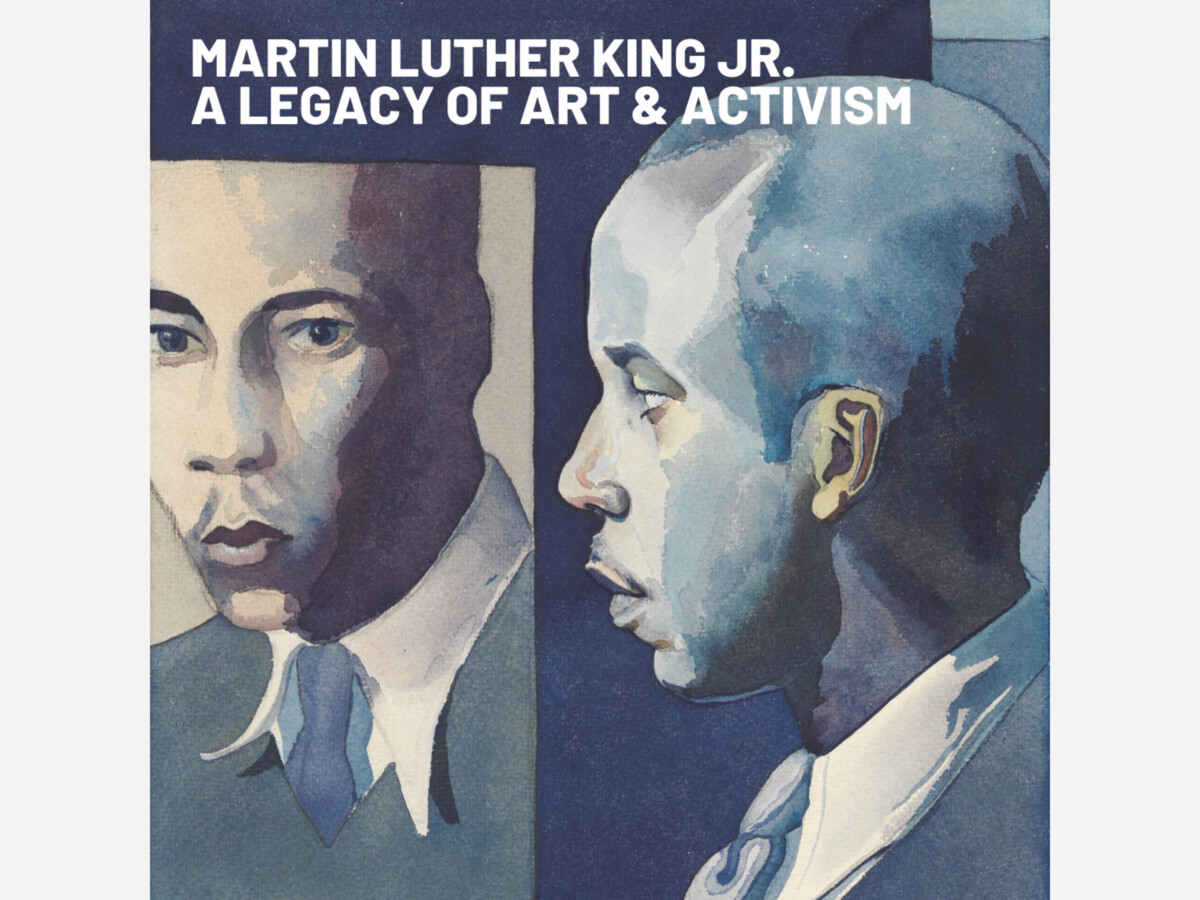Image


In the annals of American history, the impact of Martin Luther King Jr. on the civil rights movement stands as an indelible testament to the power of activism. Beyond the historical narrative, Dr. King's influence permeates the artistic landscape, becoming a wellspring of inspiration for creators across diverse mediums. From the vibrant heart of the DMV area to the expansive reaches of the country, Dr. King's legacy resonates through musical compositions, theatrical works, poetry, and literature.
Harmony in Music:
Dr. King's profound connection with music unveils a legendary facet of his persona. In a poignant moment amid the tumultuous era, preparing for a rally on April 4th, 1968, he turned to musician Ben Branch, entreating the soul-stirring rendition of "Take My Hand, Precious Lord" during the evening's meeting. Tragically, he was shot and killed before the meeting, almost as if prophesying his future. This choice resonates, showcasing the profound impact music had on Dr. King's spirit.
The iconic "I Have a Dream" speech, a beacon of hope for racial equality, drew inspiration from the stirring performances of vocal powerhouses Mahalia Jackson and Marian Anderson. Dr. King's influence birthed a symphony of compositions echoing the ongoing struggle for equality. Renowned figures like Duke Ellington, a luminary in the Big Band scene, contributed compositions such as "Three Black Kings," commissioned by the Dance Theatre of Harlem as a poignant eulogy for Dr. King.
Stevie Wonder's "Happy Birthday" emerged as a musical homage, successfully advocating for a national holiday in Dr. King's honor, now celebrated on January 15th. John Legend's "Glory," featured in the film "Selma," encapsulates the spirit of the civil rights movement, paying tribute to King's unwavering commitment.
Within the DMV area, the National Symphony Orchestra has orchestrated special performances dedicated to Dr. King, infusing classical compositions with the spirit of activism. Across the nation, contemporary artists like Common and Kendrick Lamar seamlessly integrate King's speeches into their hip-hop tracks, forging a dynamic bridge between generations and emphasizing the enduring relevance of his message.
Theatrical Narratives:
Theater emerges as a potent medium for conveying Dr. King's legacy, with productions delving into the intricate tapestry of the civil rights movement. In the DMV area, the Arena Stage in Washington, D.C., has staged compelling performances such as "The Mountaintop," a gripping play depicting the final night of Dr. King's life. These theatrical compositions offer audiences a visceral experience, immersing them in the challenges and triumphs of the struggle for equality.
Verses of Justice:
Dr. King's profound impact finds eloquent expression in poetry, a medium renowned for distilling powerful emotions into words. King himself drew inspiration from the works of Langston Hughes, forging a deep friendship with the renowned poet and frequently evoking his verses in speeches. Poets like Maya Angelou, Gwendolyn Brooks ("Martin Luther King Jr."), and Sonia Sanchez ("Morning Song and Evening Walk") have crafted verses paying tribute to Dr. King's vision of a harmonious and just society.
Literary Narratives:
Dr. King's intellectual breadth extended beyond his popular Christian morality references to include the works of Gandhi, Eastern philosophy, and Buddhist teachings. His relationships with James Baldwin and Langston Hughes, showcased the intersection of activism and literature. Literature played a pivotal role in preserving and disseminating Dr. King's legacy. Within the DMV area, local authors have delved into the region's role in the civil rights movement. Nationally, works like "The Autobiography of Martin Luther King Jr.," edited by Clayborne Carson, provide a comprehensive exploration of Dr. King's life and impact.
Beyond the Dream:
As we celebrate Dr. King's legacy, it's essential to acknowledge his multifaceted activism. Beyond his iconic "I Have a Dream" speech, Dr. King passionately advocated for the rights of poor and working-class people, transcending racial boundaries. Maryum Ali, daughter of the legendary Mohammed Ali, emphasizes that King was a true activist, advocating for racial equlity while also challenging the maltreatment of the forgotten masses within the capitalist structure.
The celebration of Dr. King's legacy reminds us that art, in its myriad forms, possesses the transformative power to amplify the message of justice and inspire change for generations to come. In the DMV and across the nation, the echo of Dr. King's legacy reverberates in the harmonious intersection of art and activism.